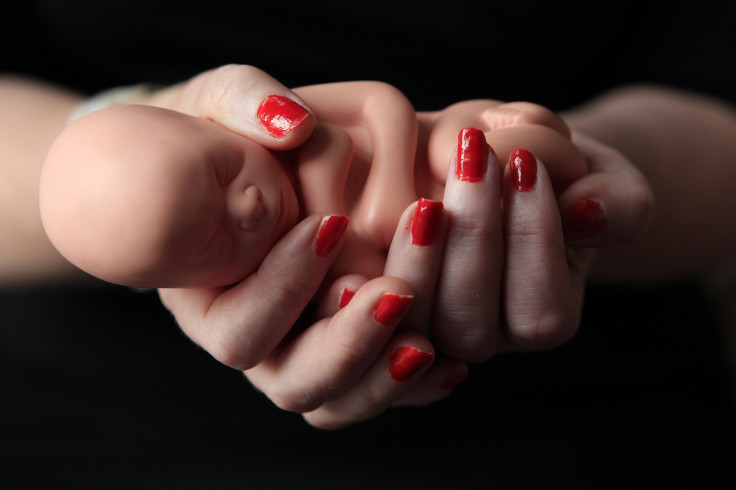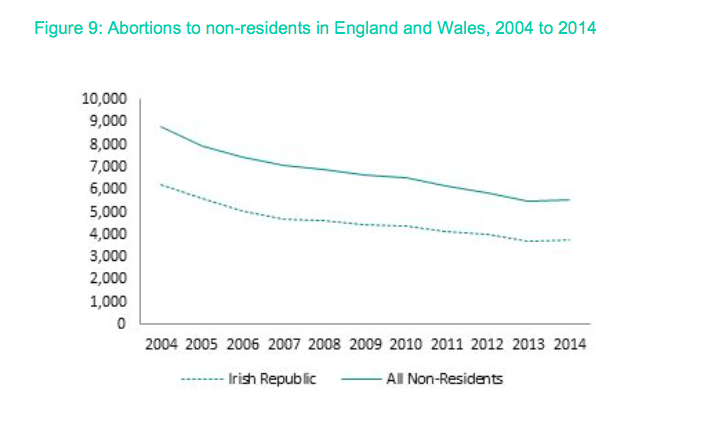Irish women seeking fewer abortions in UK as cost rises and online pills more available

Irish women have been getting fewer abortions in the UK over the past decade, according to new statistics from the Department of Health.
This is largely due to the high cost of travel and availability of pills online, advocacy groups argue.
The statistics, issued on 9 June, tracked abortions in England and Wales through 2014. Last year the numbers show 5,521 abortions were given to women from outside these regions. But "the bulk of these patients arrived from the Irish Republic (68%) and Northern Ireland (15%)," the report said.
Although the number is slightly up — a 0.95% increase compared with the 5,469 in 2013 — the long-term trend shows a decline. The number of these abortions was roughly 9,000 in 2004. And in 2013 these numbers reached the lowest in any year since 1969.
"Amsterdam and Brussels have clinics where they speak English and they're used to dealing with women from Ireland and Northern Ireland," says Mara Clarke, director of the Abortion Support Network, a charity that financially helps women from Ireland and Northern Ireland too poor to afford the costs in the UK.
Most of the women the group subsidises have been trying to raise money for a termination themselves, but "as they're raising the money, it's becoming more expensive" as their pregnancy gets further and further along, Clarke continued. With the strength of the pound it's often cheaper for them to fly to the continent and pay in euros, she says.

It costs anywhere between £400 (€544, $611) to £2,000 for women to travel from Ireland to England to get a surgical procedure. The costs include things like consultations, airfare and getting a visa.
Clarke's group helps people like Frances, whose story appears in a new Amnesty International report published the same day the UK numbers arrived.
Frances scraped together the money she needed for an abortion from her savings. "I spent every penny I had at the time on that," she told Amnesty International. She said that as her family's breadwinner in a rural area that she "would have been plunged into absolute poverty" if she had another child to add to her two daughters.
The report indicates "every day, between 10 and 12 women and girls living in Ireland travel to England" to get an abortion.
Changes to abortion laws in Ireland in 2013 have allowed the procedure in the Catholic country for the first time, but only under dire health complications. Amnesty International says this means Ireland still needs to do a better job in protecting women's health.
The global organisation believes that if the option is not widely available, vulnerable groups, such as the poor, asylum-seekers and migrants, "may resort to unsafe, illegal abortion or to suicide".
The new laws granting "equal rights to the foetus and the pregnant woman" only serve to "ensured that abortion remains criminalised on all but the narrowest of grounds", the report concludes.
But this is for late term pregnancies. For the first time, the UK's Department of Health numbers show most women terminate their pregnancies within the first 13 weeks using pills.
Pills accounted for 51% of the total 184,571 abortions carried out in England and Wales last year. In 2004 pills accounted for only 20%.
"I think you could start getting these pills on the Internet eight years ago," said Clarke, indicating that many women have turned to this option in Ireland. It may also account for the decline in numbers travelling to England, she adds.
"I could personally name a couple hundred women who have taken those pills," she says. Last October a group of pro-choice activists swallowed abortion pills outside a railway station in Dublin after they travelled from Northern Ireland to buy them.
Under a strict reading of the current laws, this is illegal, says Clarke. As for her organisation, "we don't hear from the average women who needs an abortion," she said, "we only hear from the women who are desperate."
© Copyright IBTimes 2025. All rights reserved.






















